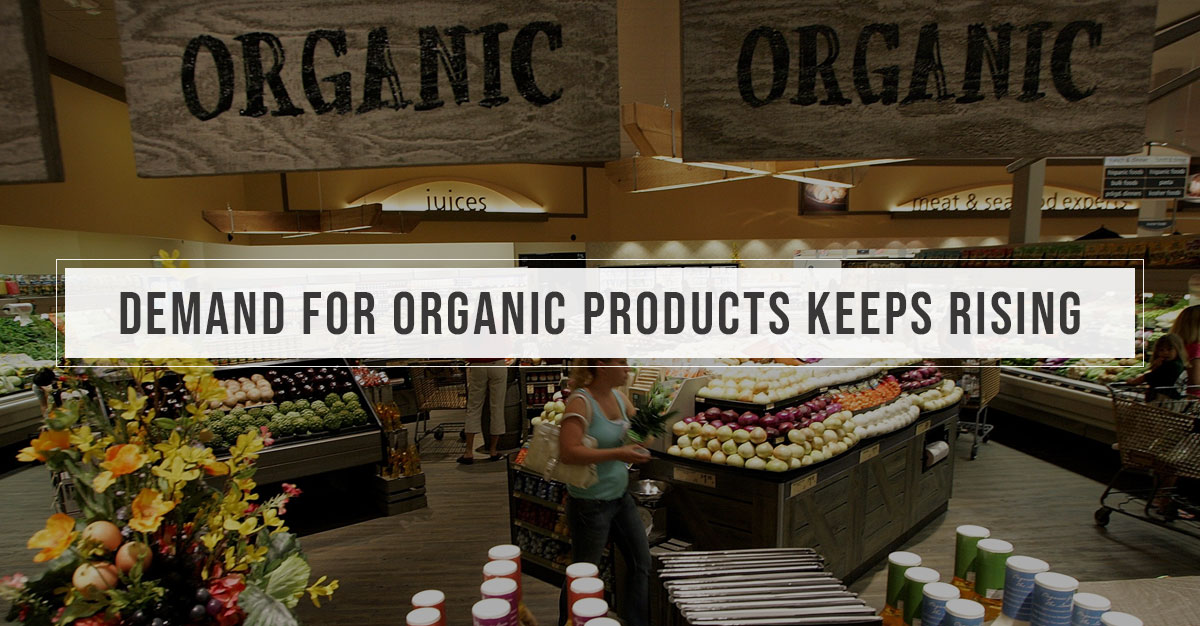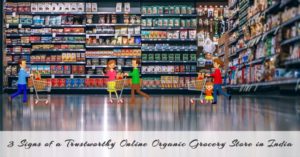
It is very important for us to understand that the conventional agriculture practice in use today is inducing harmful chemicals & fertilisers into our food chain. As a result, the consumers and farmers are suffering from numerous long term diseases and ailments. Use of chemical fertilizers and pesticides in farming is not at all a sustainable path for farmers. Consumers are now getting aware of harmful effects of fertilizers and peptides and are more cautious than ever. The awareness towards healthy living and the abundance of information available over the internet is driving individual consumers to further explore healthier ways of living and they want to start with good and safe food. Consumers have now realized what is wiser and smarter to spend on eating healthy than spending on medical treatments. A large number of customers have already accepted and welcomed certified organic food. It is estimated that more than 100K customers every month search for organic and healthy food online. Organic product market in India has already grown to over 4000 Cr and it is expected to grow up to 10k to 12k by the end of 2020.
Organic products are not only confined within food sector but also have expanded its arms in personal care and clothing. The demand of organic and natural personal care products is increasing every moment. Particularly Indian urban mothers are very choosy about the baby care products and garments for their kids. It was estimated in 2015 that Indian organic beauty and personal care market at that time was around 11.7 billion U.S. dollar. And it is seen that it is constantly growing.
According to a study published by ASSOCHAM (The Associated Chambers of Commerce and Industry of India) — “The organic markets in India are largely spread across the food and beverages, health and wellness, beauty and personal care and textile industries. The highest growth is observed in the organic food segment, followed by textile, beauty and personal care.”
Fast fashion is world’s second largest polluting industry in the world. And we find that most of the multinational fashion brands have their manufacturing units here in India. But when we wear clothes we neither ask ourselves how it is manufactured nor we try to find out if the clothes come out of sweatshops. Beside organic products consumers are also getting cautious about ethicality of the products and sustainability of the process used during the manufacturing of these products.
Nature has given us everything to live naturally but capitalist market has made a clutch in the market to pollute the earth in all possible ways. It is evident that we are the victims of harmful chemicals and toxic substances that are present all around us.
However the ultimate power to decide what to buy and what not depends on the the consumer. We strongly believe that this psychological impact has also played a big role in raising the demand for organic and natural products all around. If we closely notice the recent commercials in TV and other media, we will find that most of the non organic & chemical beauty and personal care brands are also trying to get into this organic market by tweaking their products and rebranding the product labels to convince consumers that it is natural and safe to use.
Central Government of India & various State Governments are taking initiatives to make organic cultivation more popular. Sikkim has become India’s first fully organic state starting organic cultivation on around 75,000 hectares of agricultural land. Selling of chemical fertilizers and pesticides are strictly prohibited there.
On the regulatory front, Food Standards and Safety Authority of India (FSSAI), in December 2017, has recognized both the certification systems (NPOP and PGS-India) valid for organic food products. This provides an impetus to both promote and regulate markets so that domestic consumers and export countries can trust Indian organic products.
India has been thriving to practise the organic cultivation in a remarkable way. Till 1990s the sector was limited to Tea only; however the scenario has changed dramatically now due to the rising demand of organic product. Indian Govt. has introduced many schemes like National Program for Organic Production (NPOP), National Project on Organic Farming (NPOF), National Mission on Sustainable Agriculture (NMSA) & many more. These initiatives are helping farmers to adopt organic way of farming; which in turn is making organic food economical for Indian consumers. This growth in the demand for organic products will be bridged with more supply.
Still a long way to go. Various challenges exist to raise the demand of organic products in India; some are supply chain issues, global competition, lack of proper knowledge of the farmers about organic certification & other formalities, lack of awareness among ground level consumers (mostly of tier III towns), high cost & limited availability of organic products etc.
However we are optimistic. There is an urgent need to have an organic policy to monitor organic cultivation and schemes. Necessary steps should be taken to discourage the farmers about the use of chemical fertilizers and pesticides & to make people aware about the benefits of organic food & products.







